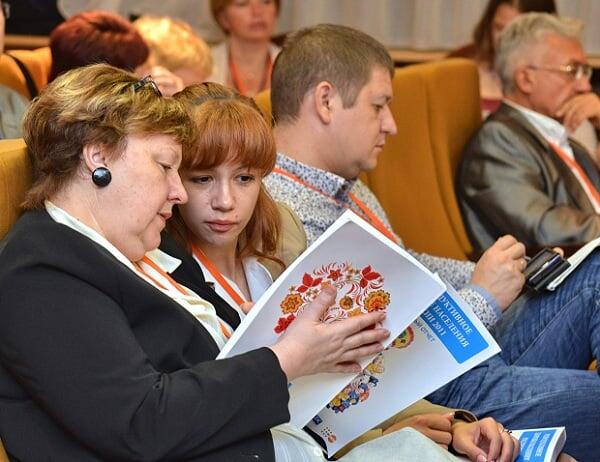Support for introducing sexuality education in school curricula is widespread among women in the Russian Federation, according to the findings of a major reproductive health survey published by the Federal State Statistics Service (Rosstat) and the Ministry of Health and Social Development in partnership with UNFPA, the US-based Center for Disease Control and Prevention and the NGO “Statistics of Russia” in Moscow on 28 May.
Nearly 90 percent of the over 10,000 women from all over Russia who participated in the survey said they would like to see young people learn about their sexuality in the class room.
The survey, the first such study since the collapse of the Soviet Union in the early 1990s, confirms some of the trends captured in official statistics, such as rising fertility levels and decreasing infant mortality and abortion rates.
But as Svetlana Nikitina, the Head of the Rosstat’s Division on Population and Health Care Statistics, pointed out at the launch event, the survey also provides a wealth of new data which, for the first time in Russia’s history, allows for a comprehensive overview of the reproductive health situation in the country.
The survey, which was conducted in 60 regions across the country, reveals that a high proportion of women (13 percent) still use traditional, low-efficiency family planning methods, and the unmet need for modern contraceptives remains relatively high, at 17 percent. In addition, most women do not have access to professional counselling on family planning. As a result, every third pregnancy in Russia is unplanned or unwanted, and the majority of them – some 90 percent – end with artificial abortion.
Young women are at particular risk of unwanted pregnancy. One in four respondents had some sexual experience by the age of 17, generally before they got married. But only 59 percent of the 15 to 24 year-olds said they used some method of contraception during their first sexual contact. Advice on contraception is much more likely to be provided by friends (23 percent) than by professional health care providers.
These figures explain the strong support expressed by respondents for sexuality education in schools. There is solid evidence that sexuality education helps teenagers delay their sexual debuts and make responsible decisions about their sexual behaviour, leading to lower teenage birth, abortion and HIV infection rates.
The survey confirmed the prevalence of domestic violence in Russia. One in five respondents experienced physical violence, but only 12 percent of them sought professional assistance. Over a third of survey participants (37 percent) said they accept a husband’s right to use physical force against his wife.
Saliya Muzarbayeva, a Member of the Russian State Duma, said addressing domestic violence is a pressing issue in Russia: “This is why a parliamentarian initiative group together with the expert community has developed a federal law on the prevention of domestic violence.” The draft law will be presented for public discussion in the near future, she announced.
The survey, which was conducted by leading Russian and international experts, also pointed to the progress Russia has made in ensuring access to reproductive health services and awareness about risks: 99 percent of pregnant women used ante-natal services, and 90 percent of them visited a doctor during the first trimester of pregnancy.
Virtually all respondents were aware of HIV and other sexually transmitted infections, said Ilya Zhukov, UNFPA’s HIV/AIDS Officer in Russia. But he also stressed that there remain knowledge gaps: “For example, 60 percent of respondents did not know that there is medication that can reduce the risk of mother-to-child transmission of HIV.” He added that the survey showed a high level of intolerance and discrimination against people living with HIV/AIDS.
Echoing other speakers at the launch event, Karen Daduryan, Regional Team Coordinator at UNFPA’s Regional Office for Eastern Europe and Central Asia, said the survey provides an excellent basis for policy-makers to build on the progress that has been achieved in improving the reproductive health situation in Russia and to close the remaining gaps.
“We see our contribution to this ground-breaking survey as the culmination of UNFPA’s work in Russia,” Daduryan said. He added that UNFPA, after the closure of its office in Russia later this year, will continue working with Russian institutions, using their experience and expertise in the region.



